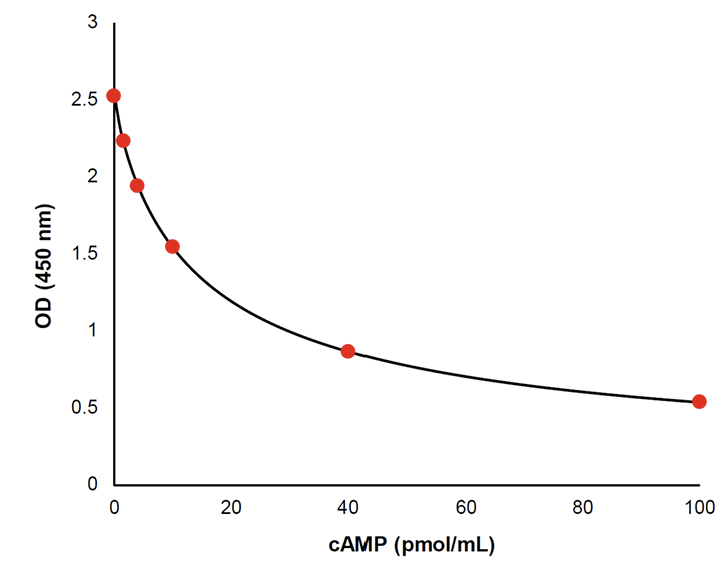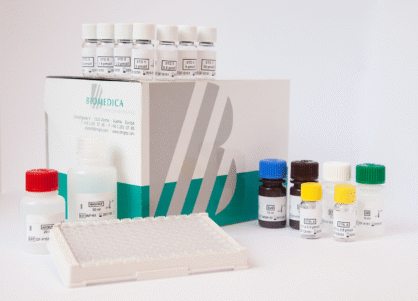cAMP Plasma ELISA Kit
Cyclic adenosine monophosphate (cAMP) is a crucial intracellular second messenger involved in transmitting signals from hormones and neurotransmitters that bind to cell surface receptors. It is synthesized from ATP by the enzyme adenylate cyclase and mediates a wide range of physiological responses by activating protein kinase A (PKA) and other downstream effectors. cAMP plays an essential role in regulating cellular processes such as metabolism, gene transcription, cell growth, and ion channel function, making it a fundamental molecule in cell signaling pathways.
In both research and clinical settings, cAMP serves as an important biomarker to study signal transduction mechanisms and the efficacy of drugs targeting G protein-coupled receptors (GPCRs). Its levels can indicate the activation state of pathways involved in diseases like heart failure, asthma, and certain cancers. Measuring cAMP is valuable for understanding hormone action, receptor function, and intracellular signaling abnormalities. Additionally, cAMP assays are frequently used in pharmacological research to evaluate the potency and mechanism of action of new therapeutic agents affecting cAMP-mediated pathways.
This cAMP Plasma ELISA Kit is manufactured in USA by Eagle Biosciences.





